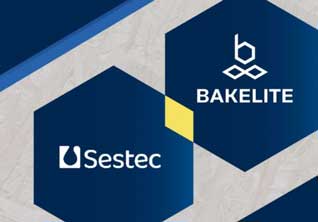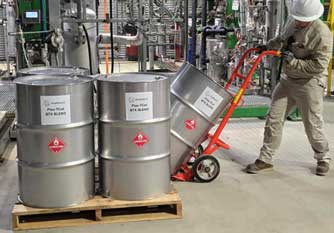Green tie-ups: Bakelite acquires Polish bio-based adhesives supplier; Anellotech/R Plus Japan to commercialise Plas-TCat technology

US-based thermoset resin producer Bakelite has announced the acquisition of Sestec, a Poland-based company renowned for its sustainable, protein-based adhesives for wood and composite products. This strategic move significantly enhances Bakelite’s position as a sustainability leader in the adhesive industry, it adds. Terms were not disclosed.
The acquisition of Sestec, whose adhesives are 100% bio-based and designed to advance environmental stewardship, aligns with Bakelite’s commitment to sustainability and innovation. By integrating Sestec’s technology, Bakelite expands its portfolio of sustainable adhesive solutions on a global scale and continues to assist customers in achieving their sustainability commitments.
Sestec’s adhesive systems, which include applications for MDF, HDF, particleboard, OSB, straw and fibreboard, and plywood, will now be part of Bakelite’s extensive product portfolio. The acquisition includes Sestec’s administration office in Kraków, and Laboratory & Production facility in Trzebinia.
“Sestec represents the future of adhesives -- bio-based and sustainable. The acquisition enables Bakelite to scale our technology globally while maintaining our commitment to sustainable innovation,” said Klaus Hofmann, CEO of Sestec.
In other news, in a major advancement for chemical recycling and circular economy solutions, R Plus Japan (RPJ) and Anellotech Inc have announced that Plas-TCat, a catalytic cracking technology that transforms mixed plastic waste directly into the base chemicals used to produce new plastics, is moving toward its commercialisation phase. The technology has been successfully vetted through more than 2,000 hours of plant operation at Anellotech’s 200,000 kg/year TCat-8 semi-commercial facility in Silsbee, Texas.

The recent milestone leading to completing a site-neutral Plas-TCat Process Design Package was supported by Technip Energies. It marks the culmination of a successful joint development effort between RPJ and Anellotech that began in 2020.
Plant trials at Cat-8 demonstrated the operational robustness, scalability, and on-stream performance of Plas-TCat. The technology uses a proven catalytic system to convert unsorted and untreated plastic waste - including PE, PP, PET, PS, PU,PC, ABS, and nylon - into high-value light olefins and aromatics, such as benzene, toluene, xylene (BTX), ethylene, and propylene, amongst other products to support the circular economy. Future plants may have pretreatment units to address halogenated feedstocks.
Anellotech CEO Dave Sudolsky, said, “At Anellotech, ‘mixed plastic waste’ does not mean mixing different colours of pure polyolefins. We combined and tested feedstocks sourced from US waste management firms to mirror the composition of aggregated plastic waste found in most countries. Included are rigid and flexible plastics, with contained typical fillers like calcium carbonate and fiberglass. To further simulate realistic conditions, we added extra paper waste as well. Throughout this, our HSE staff ensured the process was safe, practical, and aligned with chemical industry best practices.”
Commercial plant discussions are now underway with motivated feedstock, offtake, and operating partners.
Anellotech and RPJ are now focused on the early commercialisation phase. Product samples are available for customer evaluation. Interested customers and partners are encouraged to tour the TCat-8.
RPJ is a consortium of leading Japanese companies committed to solving global plastic waste challenges through innovation and international collaboration. Established in 2020, and now comprising 48 member companies across consumer goods, chemicals, and waste management, RPJ is focused on advancing chemical recycling solutions.
Anellotech is now developing commercial projects through wholly owned, joint venture, and licensed business models. Plans are for the first 20 kilotonnes/year commercial plants coming online in 2029, with 200 kilotonnes/year plants to follow in the 2030’s.
(PRA)SUBSCRIBE to Get the Latest Updates from PRA Click Here»










